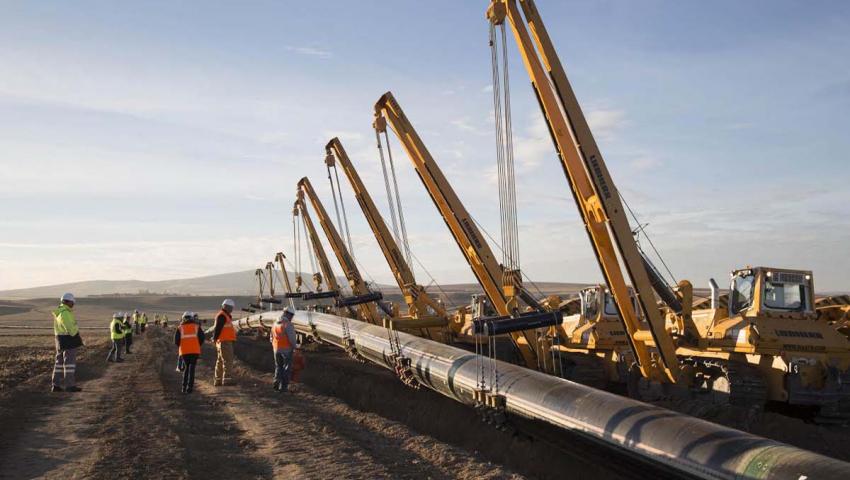The gas race is not over. It's starting now

The "green deal" has been in the media spotlight for some time. However, it is not explained that it will be based on the work done on the projects, coordinated and activated within the framework of the previous strategic views and decisions of the respective nation states and the European Commission. This also applies to gas connectivity, which is especially important for the Balkan region. Otherwise, it would mean that Europe would lightly strike out billions of investment. Therefore, the plans related to the gas infrastructure, which is still under construction and which will become part of the future hydrogen infrastructure, are important. Moreover, natural gas will continue to play an important role in the European market for the next twenty to twenty-five years. During this time, the economy and market behavior of the participants in the current gas race will change.
From January 1, 2021, Bulgaria ranks among the countries that will rely on greater security in gas supplies, with the opportunity to expand trade in the Balkan gas hub. These are just some of the benefits, despite the lag of the Greece-Bulgaria interconnector project due to the coronavirus pandemic. Although the project is generally delayed, the strategic and economic importance remains.
Change the game
It is worth recalling that the Southern Gas Corridor project includes the creation of a gas pipeline infrastructure for transporting gas to Europe through Turkey on Azerbaijani gas produced during the second stage of development of the Shah Deniz gas condensate field. The main components of the project are the expansion of the field project, the expansion of the South Caucasus gas pipeline (Baku-Georgia-Turkish border), the construction of the Trans-Anatolian (TANAP) gas pipeline from the eastern to the western border of Turkey and the Trans-Adriatic Pipeline (TAP). Greece, Albania and southern Italy across the Adriatic Sea. The total value of the project is 40 billion dollars.
The completion of the Trans-Adriatic Pipeline (TAP), which was officially announced on 15 November, is practically the last stage of the Southern Gas Corridor project. This will lead to a change in the game for the European Union (EU), as in the next 2021 it will deliver gas from the Caspian Sea to Europe for the first time. At the first stage, supplies via the Trans-Adriatic Pipeline are expected to be 10 billion cubic meters, and subsequently to be increased to 20 billion cubic meters.
Bulgaria will be connected to the TAP gas pipeline through the IGB interconnector, which connects the Greek national gas transmission system in the area of Komotini (Greece) with the Bulgarian national gas transmission system in the area of Stara Zagora. In the future, it is planned to increase the capacity to 5 billion cubic meters per year, depending on market developments.
However, this does not mean that the project is complete. On the contrary, another interesting part of the development of the overall plan in the future is forthcoming. This is the interconnector between Bulgaria and Serbia, which is also a project of common interest to the European Union and is recognized as one of the priority projects of the Central and South Eastern Europe Gas Connectivity Initiative (CESEC). Together with the IGB pipeline, the new interconnection with Serbia will be a step not only towards neighboring markets, but also the successful implementation of the Balkan Gas Hub concept for a liquid, transparent and competitive natural gas market in Bulgaria and the region.
With the Southern Gas Corridor, Azerbaijan is entering the gas race for the European gas market. At first with sufficient quantities. At the next stage, the European gas pipeline network will include the RO-HU-AT gas pipeline, which should be completed in 2022. The first phase of the project, according to Transgaz, worth $ 560 million and a route of 215 km, was completed last year. At this stage, the two phases for capacity reservation have been completed.
The RO-HU-AT pipeline connects Bulgaria, Romania, Hungary and Austria to transport gas from the Black Sea region to Central Europe. The section of the pipeline on the territory of Romania will also allow for the transportation of gas from the main gas fields in the Black Sea discovered in recent years. RO-HU-AT will also provide a link to other major gas infrastructure projects, such as the Southern Gas Corridor. The maximum annual capacity of RO-HU-AT will be 1.5 billion cubic meters for Bulgaria and 4.4 billion cubic meters for Hungary.
With the construction of this part of the infrastructure, Europe's gas market will look different. This means passing the natural gas market to a new stage and thus achieving better prices.
The gas race is not over
Strategically, the importance of Russian natural gas for the Balkans will change. He will no longer have a leading role, but will retain a significant share. Russia, through Gazprom, will also retain some of its influence through the Turkish Stream gas pipeline. This year's declines in Russian gas flows on the Turkish market are probably already being reconsidered by Russia's Gazprom, and its subsequent strategy remains to be seen, taking into account the shock caused by the coronavirus pandemic.
However, the question remains whether dependence on Russian gas will not be replaced by that coming through Turkey's gas infrastructure. It is no secret that gas flows depend to a large extent on infrastructure. The solution with the LNG terminal in Alexandroupolis gives some independence, and as part of RO-HU-AT independence is guaranteed through gas storage facilities in Hungary. The rethinking of the Trans-Balkan gas pipeline is forthcoming.
The portfolio of major players in the European gas market is in the process of being reorganized. So the gas race is not over. The price balance between the pipeline and the liquefied natural gas and of course the spot prices is also expected to be made. Let's not forget the Mediterranean gas pipeline.
